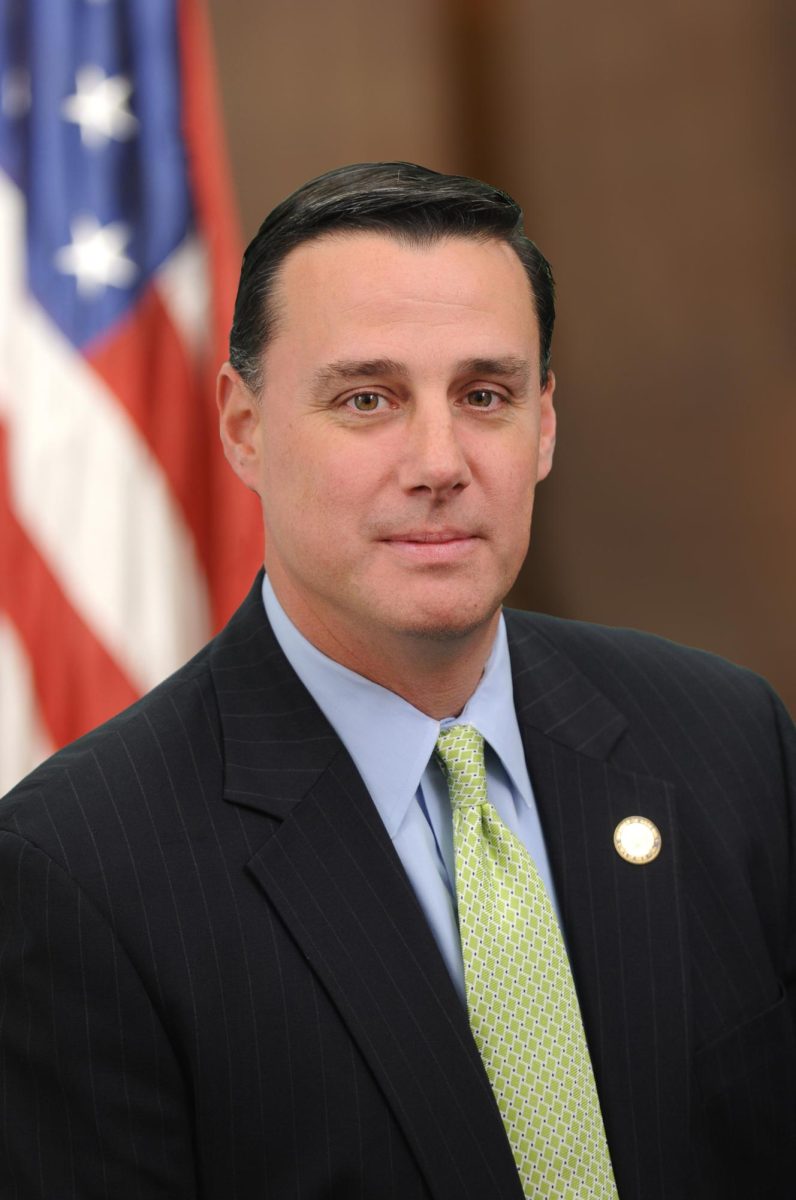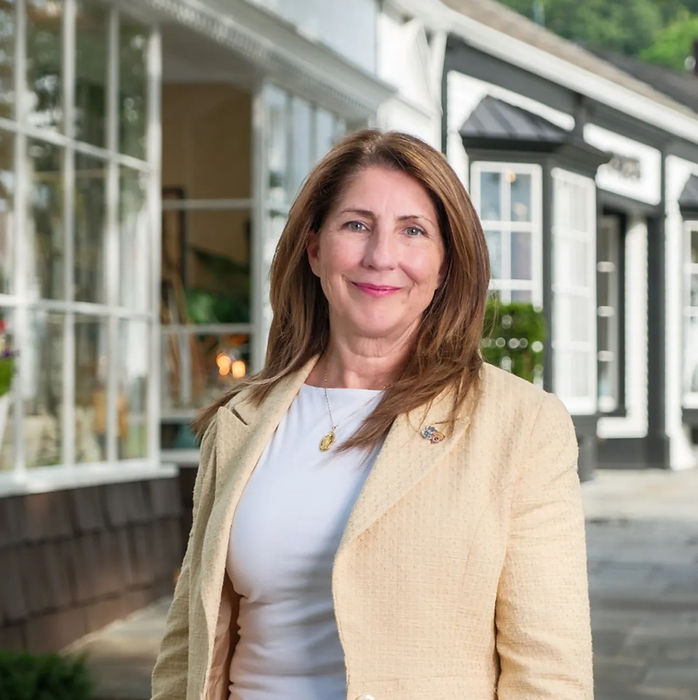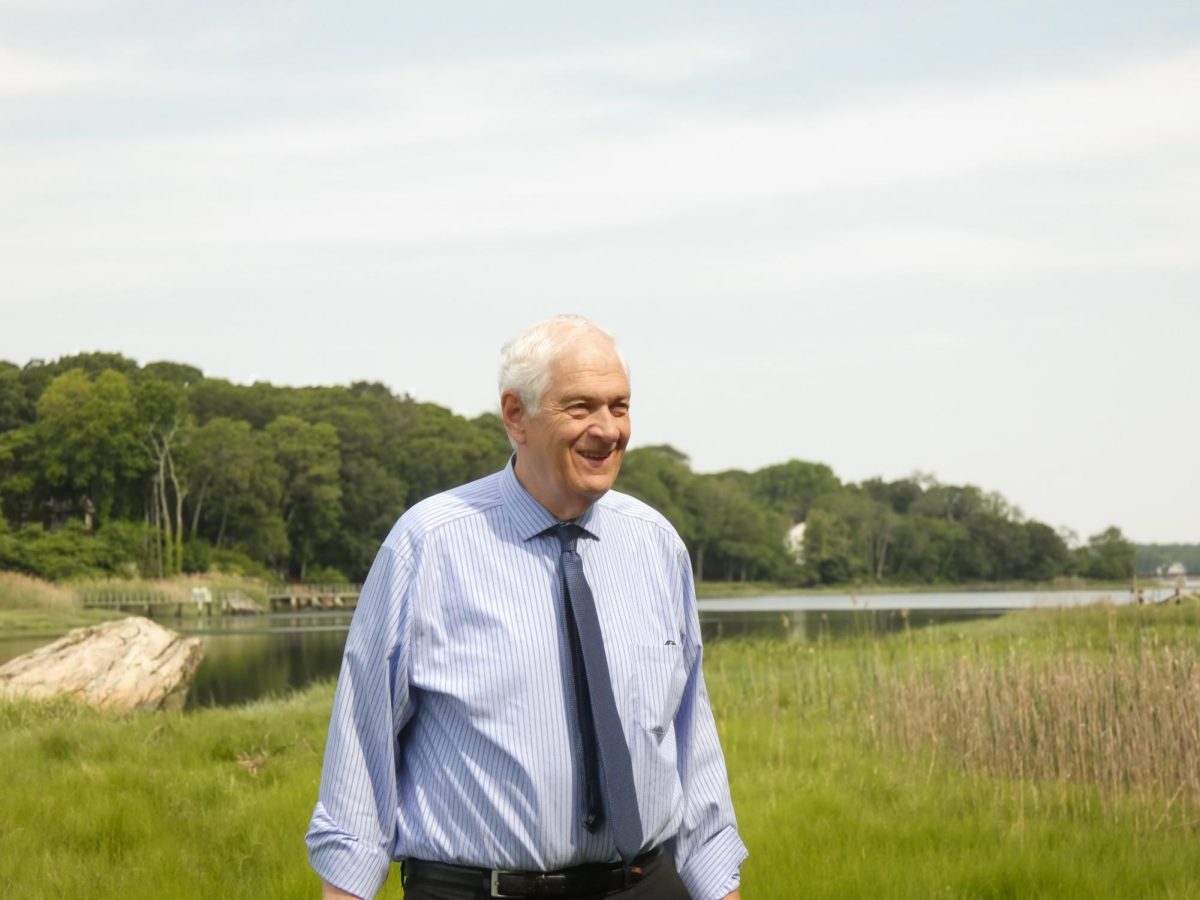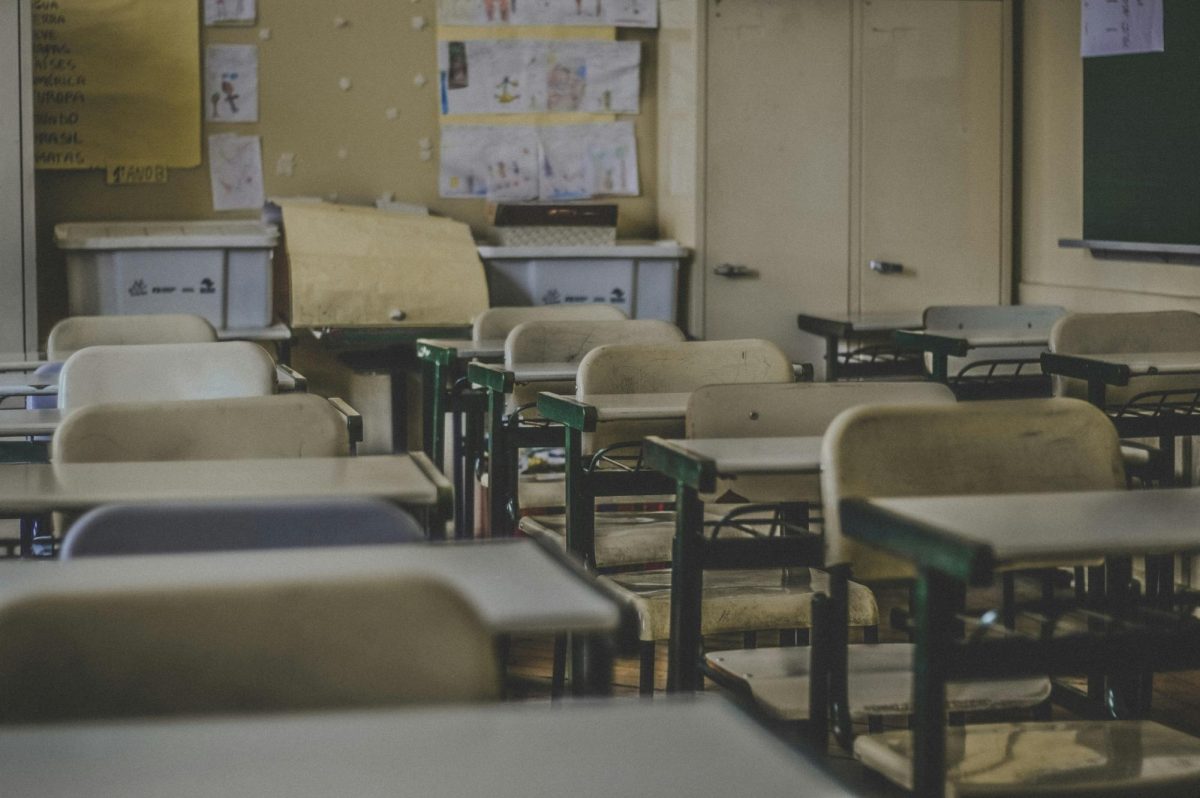Anthony Palumbo is currently serving his 2nd term as a State Senator representing District 1 and is seeking a 3rd term in office. Prior to that, he represented State Assembly District 2 as an Assemblyman for three terms. He is a Republican and is being challenged by Democratic candidate Sarah Anker. Below is the full transcript of our interview with him, lightly edited for clarity.
Kaleidoscope: What are you most proud of from your first two terms as a State Senator, and what will be your priorities if reelected?
Anthony Palumbo: There are a lot of accomplishments that we are proud of. For example, I crafted and created a community housing fund for five eastern towns. It will create a fund that will help people purchase affordable housing units and support their financing and construction. [Due to technical difficulties, we were unable to record the remainder of Senator Palumbo’s response to this question.]
This past legislative session, you sponsored Chelsey’s Law, which would allow certain fentanyl dealers to be charged with manslaughter, but it, along with three other related bills, has not passed yet. How will you continue advocating for these bills, and what else can you do to address the overdose crisis?
In the past 10 to 15 years, we’ve really done a lot for funding when it comes to the opioid crisis, addiction services and so forth, and we need to continue to do more. Suffolk County was #1 in overdose deaths a few years ago out of all 62 counties in New York State. That’s a big priority for us. Chelsey’s Law is essentially a “death by dealer” situation where, for example, if I take some fentanyl and I cut it into cocaine, trying to give you a bigger high or maybe adding talcum powder to expand my product so I can sell more and make more money, and I’m knowingly giving that to you, and you use it and overdose and die, that would be covered by Chelsey’s Law.
Right now, that’s simply a drug sale, even though I’m knowingly putting poison into the existing drug that I’m going to sell to you. With all that in mind, think about if I put rat poison in your coffee. Something like that is clearly a murder, and that’s consistent with Chelsey’s Law’s idea that they’re putting fentanyl into a known substance that you’re going to ingest. They’re not doing it in any scientific fashion; they’re just doing it in their garage, or their basement, and then selling those drugs. If someone dies as a result, at the very least it’s reckless, if not intentional, and they should be held accountable, rather than just being charged with a drug sale. If I just sold you a small quantity of straight heroin, it’s the same charge and it’s a nonviolent class B felony. So, that’s what’s really disappointing: that there’s no additional penalty for “death by dealer,” and this would fix it.
You spoke out against Governor Hochul’s proposed funding changes for schools earlier this year, including at a rally outside Ward Melville. Do you feel that updates to the Foundation Aid formula are necessary in the future?
I think yes. I think there are some issues with the wealth ratio; I think there are just a lot of issues with the way that we fund our schools because we have a lot of schools that don’t fit certain criteria where they are looking to cut certain aid increases. For example, I spoke specifically with the Mattituck superintendent, and he said in 2012, their student body was 5% English as a New Language (ENL), and in 2022, just ten years later, it was over 35%. So, in a situation like that, those services cost money. Over time, we need to think about what the services are that the school is providing and the different demographics that they are servicing. I know there’s a study now where we’re trying to figure out the best way to adjust that funding formula so it’s fair to everyone and that schools that are lower income get the services they need.
For example, I advocated for free lunch for everyone. We did it during COVID; we should be able to do that because it’s just embarrassing that there are kids who will not eat lunch instead of getting a free lunch because kids are mean, and that’s just not fair and it’s outrageous. Kids should obviously be able to eat comfortably and not have to worry about whether or not their family can afford it. I think that’s pretty much a very easy fix and it’s not that much money. We’ve addressed it a little bit in the budget, but this is not a lot of money, and I’m hopeful we can do it next year.
You also criticized the Governor for proposing cuts to schools while increasing funding for migrant services. Do you think an influx in migrant numbers negatively affects schools?
It does in a number of ways because, obviously, we’re Constitutionally obligated to educate every child, so that’s more services. By Governor Cuomo’s stroke of a pen, we were declared a sanctuary state. I think that was wrong. I don’t think we have the infrastructure for that. Look at what’s going on in New York City. They’re actually cutting police and fire services now and they’re firing teachers because they don’t have the money. They need to house these folks and we don’t know who they are and they’re just coming in in droves without any sense of order at the border. So, I get it, they are human beings. We obviously want to deal with that crisis, but we can’t be the dumping ground for anyone who just wants to come to America. We have a society of rules.
We are all immigrants pretty much and we have a system that works. I just think us welcoming everyone—for example, from Venezuela, their response was to open their prisons and send them to us*. So, you know, it’s a public safety issue, but just as importantly, it’s an infrastructure and money issue. We do not have a money tree where we can continue to fund billions of dollars. We just gave $2.4 billion just to New York City for one year, for this year. That money should be going to our veterans, it should be going to our schools and it should be going to our taxpayers. So, an immediate reversal of the sanctuary state is what we can do on the state level. Obviously, immigration is a federal issue. It just needs to be resolved immediately. [*Editor’s Note: This claim lacks evidence. According to the New York Times, “There is no evidence that the Venezuelan government is systemically or selectively releasing prisoners and expelling them from the country.” You can read that article here and an explanation from FactCheck.org here.]
Governor Hochul is expected to introduce legislation banning cell phone use in schools next year. Do you support limiting cell phones in schools, and to what extent?
Absolutely. It should be used on an emergency basis only. Kids are using it to cheat, they’re distracted and kids are obsessed with constantly staring at their phones. I have two kids, one is very much into his phone and the other one is not. My daughter is a freshman at Colgate. She just started, and her phone’s never charged, which is great, but it’s never charged, so sometimes we need to yell at her, “Can you please charge your phone so we can get in touch with you?” So there’s a balance that can be struck there, but I do support the general idea without question.
A top issue for many young people is climate change. Do you support expanding offshore wind development, and what should the state be doing, if anything, to address climate change and preserve our environment?
Climate change is a huge issue. I voted for community leadership and climate protection. We absolutely need to transition to renewables. We need to do it in a smart and reliable way. We can’t do it tomorrow. I know sometimes we get a little bit over our skis by proposing really bold ideas, but wind, solar, hydrogen—and nuclear, which is also zero-emission, I think needs to be a part of that conversation without question. We do need to transition eventually. We only have a limited amount of fossil fuels, so we need to get there someday.
Last week, flooding devastated Mill Pond and other parts of the community. What do you think we should do to limit similar destruction in the future?
The pond, obviously, is a natural resource, but I think what we really need to do is evaluate the infrastructure, meaning the structures themselves and whether or not they’re failing. This was devastating. I just left an event with the Governor and we do have FEMA funding available. The Governor has made available another $50,000 for every individual homeowner that doesn’t have flood insurance or if their damages exceed their insurance limits. We’re doing what we can on our end to deal with the disaster.
On the climate change issue, we need to harden our shores, we need to harden our infrastructure. We just cut the ribbon last year on a 12-year project rebedding Montauk, which is also in my district. We have these extreme weather events which are really devastating us who live on the coast. We’ll continue to evaluate and do what we can, because we can only do so much, but we’re focused on it now. Like the drug crisis, we have made real strides in the past 25 years recognizing that we were destroying our environment, so we’re doing the right thing now, and hopefully, we’ll make a big difference in years to come.
Over the past decade, large numbers of young people have moved out of Suffolk County. What do you think are the main issues driving this movement, and how are you countering it?
Well, it’s affordability. The biggest issues on Long Island don’t really change: public safety, affordability and the environment. Taxes and jobs are where our focus needs to be in government. That affordable housing bill that I created, four of the five eastern towns in my district adopted this policy, and it can help make living a little bit more affordable. I was in the [New York State] Assembly for seven years prior to being in the Senate for these past four. My first bill was a first-time homebuyer exemption out in the town of Southold. That’s something that has always been my focus and will continue to be in the future.
Public safety is always a top issue for voters, and you’ve emphasized your past as a former prosecutor. You have vocally criticized New York’s bail reform from 2019, parts of which have now been rolled back. What changes do you feel need to be made to our criminal justice system, and how can we make schools more safe?
My father was a Suffolk County homicide detective, I grew up in a law-enforcement family, I was in law-enforcement. I handled major cases as a prosecutor, including robberies and homicides. I really believe I do know a lot about this issue and it’s a very simple fix: allowing judges to have discretion to consider the dangerousness of a defendant—that the judge can do an evaluation. Every other state except New York allows the judges to consider the dangerousness of the defendant. Every other state in the Union, and the federal level, which is a separate system. We’re an outlier, it’s not going well, and I know we can have anecdotal evidence where you’ve got people saying, “Oh, in New York City, shootings are down and murder is down.” Crime is up, we all know that, from pre-pandemic levels, it is kind of outrageously up*. That’s a very simple fix. And to make schools safe, I believe school resource officers are always good; they’re police officers assigned to the building. At the end of the day, if we fix bail reform, that would be a huge step in the right direction. [*Editor’s Note: State Senator Palumbo is correct that crime is still higher than pre-pandemic levels. However, the claim that crime is “outrageously up” needs some context. Most crime statistics in Suffolk County have been on a downward trend recently, and Governor Kathy Hochul reported a 13% decline in crime in Suffolk County for the first half of 2024 when compared to the same period in 2023.]
Turnout among young voters tends to be lower than other age groups. What should be done to promote civic engagement among youth?
I think conveying to younger voters how important it is to vote. In non-presidential years, you have turnout that’s half, sometimes less than half, which is unfortunate because then you have groups who have agendas who can basically control an election because everyday folks just shrug their shoulders and don’t go out and vote. I think civic engagement has to do with involvement in schools. That’s where I’m glad to see you guys focused on issues like this because it’s really important. That’s the way to have your voice heard in a constitutional republic. We say we’re a democracy, but we’re a constitutional republic. We send individuals from everyday walks of life to go represent us. The people don’t vote on the legislation, but they vote on the candidates. That’s why it’s so important to make your voice heard.
This November, Suffolk County residents will vote on two ballot initiatives: the Water Quality Restoration Act and the Equal Protection of Law Amendment. Do you support these initiatives, and why?
I absolutely support the Water Quality Restoration Act. I’m on the Environmental Conservation Committee and we helped put that together. As for the Equal Rights Amendment, I don’t support it. There are some real issues with that legislation. A lot of those rights are already enshrined in law, but there are some real conflicts constitutionally regarding the nature of that proposed Constitutional amendment. In fact, I voted for it the first time it came up, and it was supposed to be on the ballot last year. We were promised that they’d (the Democrats would) make some tweaks and changes so that it would work out the kinks so that there was not really a conflict.
For example, Catholic schools will have to allow the transgender sports issue where you have conflicting rights: religious rights versus gender identity rights. At the end of the day, I voted for the original bill and then it became a political football. They moved the date so it would be during an election year, a presidential year, and they didn’t change the language they said they were going to fix. Unfortunately, I don’t support that now, but I do support the Water Quality Restoration Act, and it’s critical that we pass that.
Kaleidoscope would like to thank State Senator Palumbo and his team for taking the time to interview.









